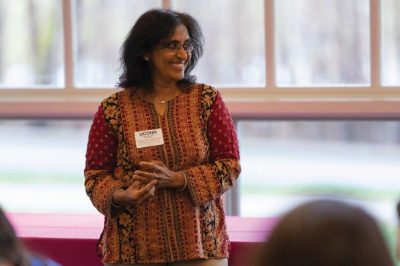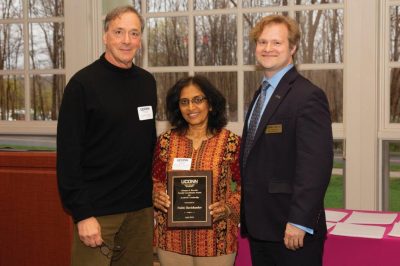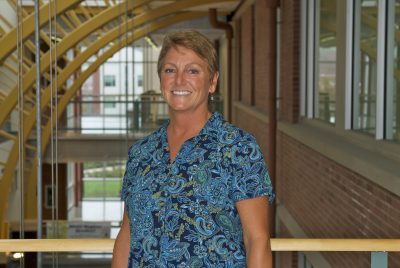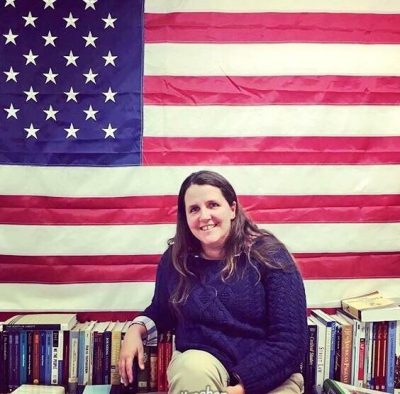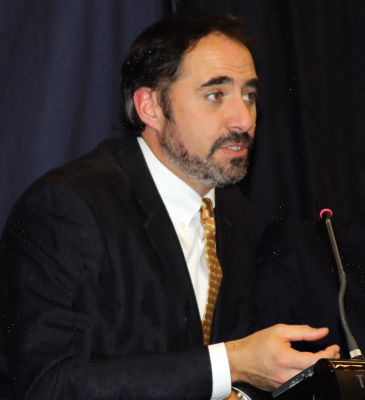By Carissa Rutkauskas
NACEP 2025 Conference, Los Angeles, CA
The 2025 NACEP National Conference—Lights, Camera, Access!— brought more than 20 years of national dual enrollment leadership to center stage in Los Angeles from October 26–28, with UConn playing a consistent and visible role through two decades of sponsorship, volunteering, and presenting. Representing UConn Early College Experience this year were Christophe r Todd, Office of Early College Programs Executive Director, and Carissa Rutkauskas, UConn ECE Outreach and Evaluation Specialist, who also participated in the pre-conference affiliated chapters meeting asNEACEP secretary alongside colleagues from Maine and Rhode Island to share best practices and strengthen regional connections. Throughout the conference, Carissa attended sessions on AI-supported advising and instruction, redefining student success, evaluating credit transferability, strengthening counselor and coordinator support, and understanding the first year experience of students entering college with dual enrollment credit—gathering insights on responsible AI use, emotional intelligence development, equity-minded program design, and collaborative K–12/postsecondary strategies. In April 2025, Chris accepted an appointment as the Member-At-Large representative on the NACEP Accreditation Commission and was excited to meet in-person with fellow commissioners for the first time. Chris participated in several Accreditation Commission meetings and served as a representative on best-practices panels throughout the conference. As NACEP celebrated 20 years, it was inspirational to see UConn’s role in the inception and growth of NACEP over the years, as the program continues to serve on the national stage as a leading example of best practices.
r Todd, Office of Early College Programs Executive Director, and Carissa Rutkauskas, UConn ECE Outreach and Evaluation Specialist, who also participated in the pre-conference affiliated chapters meeting asNEACEP secretary alongside colleagues from Maine and Rhode Island to share best practices and strengthen regional connections. Throughout the conference, Carissa attended sessions on AI-supported advising and instruction, redefining student success, evaluating credit transferability, strengthening counselor and coordinator support, and understanding the first year experience of students entering college with dual enrollment credit—gathering insights on responsible AI use, emotional intelligence development, equity-minded program design, and collaborative K–12/postsecondary strategies. In April 2025, Chris accepted an appointment as the Member-At-Large representative on the NACEP Accreditation Commission and was excited to meet in-person with fellow commissioners for the first time. Chris participated in several Accreditation Commission meetings and served as a representative on best-practices panels throughout the conference. As NACEP celebrated 20 years, it was inspirational to see UConn’s role in the inception and growth of NACEP over the years, as the program continues to serve on the national stage as a leading example of best practices.
CABE/CAPSS Convention
The CABE/CAPSS Convention— hosted annually by the Connecticut Association of Boards of Education and the Connecticut Association of Public School Superintendents—was held November 21– 22, 2025, in Mystic, CT, under the theme “Lighting the Way for Student Success.” Representing the Office of Early College Programs, Christopher Todd (OECP Executive Director), Bobbi-Jo Wathan (UConn Pre-College Summer Director), Carissa Rutkauskas (ECE Outreach & Evaluation Specialist), and Erin Blanchette (OECP Billing & Operations Specialist) engaged with attendees, including board of education members, superintendents, educators, and administrators, to share OECP opportunities and strengthen statewide partnerships. OECP is in their 4th year of partnering with CABE/CAPSS. A highlight of the event was the Friday morning keynote by Dr. Miguel Cardona,
22, 2025, in Mystic, CT, under the theme “Lighting the Way for Student Success.” Representing the Office of Early College Programs, Christopher Todd (OECP Executive Director), Bobbi-Jo Wathan (UConn Pre-College Summer Director), Carissa Rutkauskas (ECE Outreach & Evaluation Specialist), and Erin Blanchette (OECP Billing & Operations Specialist) engaged with attendees, including board of education members, superintendents, educators, and administrators, to share OECP opportunities and strengthen statewide partnerships. OECP is in their 4th year of partnering with CABE/CAPSS. A highlight of the event was the Friday morning keynote by Dr. Miguel Cardona,  12th U.S. Secretary of Education, whose deep Connecticut roots—from his early career as a Meriden teacher and principal to serving as Connecticut’s Education Commissioner and as a proud UConn graduate—resonated strongly with the convention’s focus on advancing student success across the state.
12th U.S. Secretary of Education, whose deep Connecticut roots—from his early career as a Meriden teacher and principal to serving as Connecticut’s Education Commissioner and as a proud UConn graduate—resonated strongly with the convention’s focus on advancing student success across the state.
Katie Boland Constitution
UConn ECE Political Science Instructor Katie Boland, who teaches POLS 1202 – Introduction to Comparative Politics, POLS 1402: Introduction to International Relations, and POLS 1602: Introduction to American Politics, continues to inspire civic learning through her dynamic Constitution Day programming, which she shares annually through her popular YouTube channel to  educate not only her own students at Trumbull High School but classrooms across the state. Constitution Day—recognized nationally each September 17 to commemorate the signing of the U.S. Constitution in 1787—has become a signature event for Boland’s AP/UConn American Government classes, who celebrate the day by creating schoolwide educational activities and promoting #ConstitutionDay2025. Renowned for her passionate and award-winning approach to civics education, Boland leads Trumbull’s acclaimed “We the People” team, guiding students to multiple state and national honors through simulated constitutional hearings, while her creative teaching methods including her well-known George Washington persona—bring historical concepts to life. A recipient of the American Lawyers Alliance Teacher of the Year award, Boland exemplifies the impact of exceptional UConn ECE instructors by cultivating informed, engaged future citizens through both classroom innovation and her expanding digital constitutional-education outreach.
educate not only her own students at Trumbull High School but classrooms across the state. Constitution Day—recognized nationally each September 17 to commemorate the signing of the U.S. Constitution in 1787—has become a signature event for Boland’s AP/UConn American Government classes, who celebrate the day by creating schoolwide educational activities and promoting #ConstitutionDay2025. Renowned for her passionate and award-winning approach to civics education, Boland leads Trumbull’s acclaimed “We the People” team, guiding students to multiple state and national honors through simulated constitutional hearings, while her creative teaching methods including her well-known George Washington persona—bring historical concepts to life. A recipient of the American Lawyers Alliance Teacher of the Year award, Boland exemplifies the impact of exceptional UConn ECE instructors by cultivating informed, engaged future citizens through both classroom innovation and her expanding digital constitutional-education outreach.
UConn ECE Scholarships Expanded
UConn Early College Experience is excited to unveil a significant expansion of its student scholarship program, increasing the number of categories from three to six and fully revamping two of the original categories to better reflect the breadth of UConn ECE coursework. All 108 ECE courses now align with one of the six scholarship areas— Humanities, Social Sciences, or Interdisciplinary Studies; Visual, Performing, or Digital Arts; Science, Technology, Engineering, or Mathematics; Professional Careers, Public Service, or Applied Studies; Languages, Literatures, and Cultures; and Agriculture, Health, or Natural Resources—with two scholarships offered in each category, for a total of twelve awards. Each award provides $1,000 to a high achieving senior whose academic interests and accomplishments exemplify excellence within their subject area. This redesigned structure not only broadens opportunities for students but also ensures recognition across the full range of disciplines represented in UConn ECE. Applications for the 2025-2026 academic year open January 19, 2026 and close March 9, 2026. For more information, visit ece.uconn.edu/students-parents/student-scholarships/
UConn Early College Experience Data Now Included in 2023-24 IPEDs
For the first time in its 70-year history, UConn Early College Experience (ECE) data was included in the Integrated Postsecondary Education Data System (IPEDS) with the 2023–24 reporting cycle—a landmark moment for concurrent enrollment nationwide. IPEDS, the federal government’s primary source for higher education data, only recently began capturing dual enrollment in a consistent way, following its major 2022–23 shift to collect a direct national headcount of dual enrollment students. This evolution in federal reporting brings long-needed visibility to high school students taking college courses—such as UConn ECE students, who are not matriculated—and recognizes the impact of long-standing, high-quality programs like UConn ECE, the nation’s oldest concurrent enrollment program. The inclusion of UConn ECE data in IPEDS also aligns with Connecticut’s advancement in statewide reporting through the newly launched CSDE Dual Credit Dashboard, ensuring that, for the first time, systems outside the university are documenting the full scope of dual credit participation across the state. Together, these tools now capture UConn course-taking across multiple contexts, each in slightly different ways. For data specific solely to the UConn ECE program, the UConn ECE Data Dashboard remains the authoritative source; for exploring the new IPEDS dual enrollment figures, the Community College Research Center (CCRC) Dual Enrollment Dashboard by John Fink offers an excellent resource for examining national trends.
Faculty Coordinator Morty Ortega featured in UConn Magazine
Congratulations to Morty Ortega on his incredible accomplishments featured in the UConn Magazine! His dedication to innovation and excellence continues to make an impact across our  community. We’re proud to have Morty serving as a UConn ECE Faculty Coordinator for Natural Resources & the Environment, where he helps ensure the integrity of UConn courses offered in partner high schools and supports the professional development of UConn ECE Instructors. Read the entire article in the UConn Magazine.
community. We’re proud to have Morty serving as a UConn ECE Faculty Coordinator for Natural Resources & the Environment, where he helps ensure the integrity of UConn courses offered in partner high schools and supports the professional development of UConn ECE Instructors. Read the entire article in the UConn Magazine.
Concurrent Enrollment Review, volume 3

The latest edition of Concurrent Enrollment Review is now available.
• Supporting Faculty Liaisons in Concurrent Enrollment Programs |Nicole A. Diederich
• Navigating Dual Worlds: The Complex Experiences of Concurrent Enrollment Instructors | Teri St. Pierre
• Cross-Pollination of Ideas: Exploring the Mental Health Implications of Academic Pressure in Dual Enrollment Programs for Students |Lorenzo Rene
• Early College Program Implementation and Growth: A Collaborative
Initiative by a State University |Olcay Yavuz and Trudy Milburn Concurrent Enrollment Review (CER) is the first independent, open access, peer reviewed journal dedicated to research in the field of dual/concurrent enrollment. surface.syr.edu/cer/
2025 Welcome back packages
UConn Early College Experience kicked off the 2025–26 academic year by sending “Welcome” and “Welcome Back” packages to more than 200 partner high schools, filled with requested program materials, brochures, marketing items, UConn ECE polo shirts for new instructors and site representatives, and new “School of Distinction” banners. This year’s packages also included special  celebratory items: each partner instructor, site representative, principal, and superintendent received a commemorative UConn ECE 70th Anniversary Challenge Coin, featuring our 70-year milestone on one side and an “Established in 1955” emblem on the other recognizing UConn as the nation’s oldest concurrent enrollment program. Included with the coin was a message of gratitude reflecting the spirit of our 70th year: that the program’s longevity and impact are made possible by the dedication of ECE instructors, counselors, administrators, and university faculty who, since 1955, have worked together to expand access and preparation for post-secondary success.
celebratory items: each partner instructor, site representative, principal, and superintendent received a commemorative UConn ECE 70th Anniversary Challenge Coin, featuring our 70-year milestone on one side and an “Established in 1955” emblem on the other recognizing UConn as the nation’s oldest concurrent enrollment program. Included with the coin was a message of gratitude reflecting the spirit of our 70th year: that the program’s longevity and impact are made possible by the dedication of ECE instructors, counselors, administrators, and university faculty who, since 1955, have worked together to expand access and preparation for post-secondary success.
UConn ECE also launched a new annual tradition of presenting Top 10 School Banners to schools that ranked highest in one of three categories: (1) Highest Number of Students Enrolled in UConn Courses, (2) Largest Percent Enrollment Increase from the Previous Year, and (3) Highest Percentage of the High School Enrolled in UConn Courses. The 2024 -25 Top 10 schools can be found in the “By the Numbers” feature of our Summer 2025 magazine. We are also pleased to welcome several new partner schools for 2025–26, including ACES at Chase, the American School for the Deaf, Arts at the Capitol Theater Performing Arts Magnet High School, New Milford High School, and Upper School Madina Academy.
OECP Welcomes Jessica Lynch
Jessica Lynch joined Pre-College summer in July of this year. She serves as the Program Coordinator for UConn’s Pre-College Summer Program. Jessica holds a Master’s Degree in Hig her Education Administration from Southern New Hampshire University and a Bachelor’s Degree in General Studies from Eastern Connecticut State University. She brings experience in higher education, with afocus on academic advising, student development, and college and career readiness. In addition to her advising roles, she also teaches courses in Public Speaking and College and Career Success, further reinforcing her commitment to early college awareness, access, and student empowerment. Jessica is dedicated to creating inclusive, supportive environments that encourage exploration, growth, and readiness for life beyond high school.
her Education Administration from Southern New Hampshire University and a Bachelor’s Degree in General Studies from Eastern Connecticut State University. She brings experience in higher education, with afocus on academic advising, student development, and college and career readiness. In addition to her advising roles, she also teaches courses in Public Speaking and College and Career Success, further reinforcing her commitment to early college awareness, access, and student empowerment. Jessica is dedicated to creating inclusive, supportive environments that encourage exploration, growth, and readiness for life beyond high school.
70 Years, 70 Faces, One UConn ECE Legacy
In 2025–26, UConn Early College Experience celebrates 70 years of offering UConn credits to high school students. Now, we want to celebrate you. Were you part of UConn ECE or the High School Co-op Program as a student?
We’re collecting stories for a special anniversary campaign—and we’d love to hear yours!
We’re especially looking for:
• Multi-generational ECE families
• “Full-circle” journeys (former students who became instructors or administrators)
• Notable alumni doing amazing things
• First generation college students
• Students who were greatly impacted taking UConn courses in high school
Selected contributors will be featured on UConn ECE social media and in the UConn ECE Magazine as part of our 70 Years,70 Faces campaign.
Be one of the 70 Faces who help us honor this legacy. Share your story and submit here: ece.uconn.edu/about/history/
ECE Welcomes/ Welcomes Back 5 New Faculty Coordinators

Dramatic Arts: Adrienne Macki, Ph.D.

Educational Curriculum and Instruction: Michele Back, Ph.D.

Engineering: Arash Zaghi, Ph.D.

Human Development & Family Sciences: Brian Chapman, Ph.D.

Music: Louis Hanzlik, PhD
 r Todd, Office of Early College Programs Executive Director, and Carissa Rutkauskas, UConn ECE Outreach and Evaluation Specialist, who also participated in the pre-conference affiliated chapters meeting asNEACEP secretary alongside colleagues from Maine and Rhode Island to share best practices and strengthen regional connections. Throughout the conference, Carissa attended sessions on AI-supported advising and instruction, redefining student success, evaluating credit transferability, strengthening counselor and coordinator support, and understanding the first year experience of students entering college with dual enrollment credit—gathering insights on responsible AI use, emotional intelligence development, equity-minded program design, and collaborative K–12/postsecondary strategies. In April 2025, Chris accepted an appointment as the Member-At-Large representative on the NACEP Accreditation Commission and was excited to meet in-person with fellow commissioners for the first time. Chris participated in several Accreditation Commission meetings and served as a representative on best-practices panels throughout the conference. As NACEP celebrated 20 years, it was inspirational to see UConn’s role in the inception and growth of NACEP over the years, as the program continues to serve on the national stage as a leading example of best practices.
r Todd, Office of Early College Programs Executive Director, and Carissa Rutkauskas, UConn ECE Outreach and Evaluation Specialist, who also participated in the pre-conference affiliated chapters meeting asNEACEP secretary alongside colleagues from Maine and Rhode Island to share best practices and strengthen regional connections. Throughout the conference, Carissa attended sessions on AI-supported advising and instruction, redefining student success, evaluating credit transferability, strengthening counselor and coordinator support, and understanding the first year experience of students entering college with dual enrollment credit—gathering insights on responsible AI use, emotional intelligence development, equity-minded program design, and collaborative K–12/postsecondary strategies. In April 2025, Chris accepted an appointment as the Member-At-Large representative on the NACEP Accreditation Commission and was excited to meet in-person with fellow commissioners for the first time. Chris participated in several Accreditation Commission meetings and served as a representative on best-practices panels throughout the conference. As NACEP celebrated 20 years, it was inspirational to see UConn’s role in the inception and growth of NACEP over the years, as the program continues to serve on the national stage as a leading example of best practices. 22, 2025, in Mystic, CT, under the theme “Lighting the Way for Student Success.” Representing the Office of Early College Programs, Christopher Todd (OECP Executive Director), Bobbi-Jo Wathan (UConn Pre-College Summer Director), Carissa Rutkauskas (ECE Outreach & Evaluation Specialist), and Erin Blanchette (OECP Billing & Operations Specialist) engaged with attendees, including board of education members, superintendents, educators, and administrators, to share OECP opportunities and strengthen statewide partnerships. OECP is in their 4th year of partnering with CABE/CAPSS. A highlight of the event was the Friday morning keynote by Dr. Miguel Cardona,
22, 2025, in Mystic, CT, under the theme “Lighting the Way for Student Success.” Representing the Office of Early College Programs, Christopher Todd (OECP Executive Director), Bobbi-Jo Wathan (UConn Pre-College Summer Director), Carissa Rutkauskas (ECE Outreach & Evaluation Specialist), and Erin Blanchette (OECP Billing & Operations Specialist) engaged with attendees, including board of education members, superintendents, educators, and administrators, to share OECP opportunities and strengthen statewide partnerships. OECP is in their 4th year of partnering with CABE/CAPSS. A highlight of the event was the Friday morning keynote by Dr. Miguel Cardona,  12th U.S. Secretary of Education, whose deep Connecticut roots—from his early career as a Meriden teacher and principal to serving as Connecticut’s Education Commissioner and as a proud UConn graduate—resonated strongly with the convention’s focus on advancing student success across the state.
12th U.S. Secretary of Education, whose deep Connecticut roots—from his early career as a Meriden teacher and principal to serving as Connecticut’s Education Commissioner and as a proud UConn graduate—resonated strongly with the convention’s focus on advancing student success across the state. educate not only her own students at Trumbull High School but classrooms across the state. Constitution Day—recognized nationally each September 17 to commemorate the signing of the U.S. Constitution in 1787—has become a signature event for Boland’s AP/UConn American Government classes, who celebrate the day by creating schoolwide educational activities and promoting #ConstitutionDay2025. Renowned for her passionate and award-winning approach to civics education, Boland leads Trumbull’s acclaimed “We the People” team, guiding students to multiple state and national honors through simulated constitutional hearings, while her creative teaching methods including her well-known George Washington persona—bring historical concepts to life. A recipient of the American Lawyers Alliance Teacher of the Year award, Boland exemplifies the impact of exceptional UConn ECE instructors by cultivating informed, engaged future citizens through both classroom innovation and her expanding digital constitutional-education outreach.
educate not only her own students at Trumbull High School but classrooms across the state. Constitution Day—recognized nationally each September 17 to commemorate the signing of the U.S. Constitution in 1787—has become a signature event for Boland’s AP/UConn American Government classes, who celebrate the day by creating schoolwide educational activities and promoting #ConstitutionDay2025. Renowned for her passionate and award-winning approach to civics education, Boland leads Trumbull’s acclaimed “We the People” team, guiding students to multiple state and national honors through simulated constitutional hearings, while her creative teaching methods including her well-known George Washington persona—bring historical concepts to life. A recipient of the American Lawyers Alliance Teacher of the Year award, Boland exemplifies the impact of exceptional UConn ECE instructors by cultivating informed, engaged future citizens through both classroom innovation and her expanding digital constitutional-education outreach. community. We’re proud to have Morty serving as a UConn ECE Faculty Coordinator for Natural Resources & the Environment, where he helps ensure the integrity of UConn courses offered in partner high schools and supports the professional development of UConn ECE Instructors. Read the entire article in the
community. We’re proud to have Morty serving as a UConn ECE Faculty Coordinator for Natural Resources & the Environment, where he helps ensure the integrity of UConn courses offered in partner high schools and supports the professional development of UConn ECE Instructors. Read the entire article in the 
 celebratory items: each partner instructor, site representative, principal, and superintendent received a commemorative UConn ECE 70th Anniversary Challenge Coin, featuring our 70-year milestone on one side and an “Established in 1955” emblem on the other recognizing UConn as the nation’s oldest concurrent enrollment program. Included with the coin was a message of gratitude reflecting the spirit of our 70th year: that the program’s longevity and impact are made possible by the dedication of ECE instructors, counselors, administrators, and university faculty who, since 1955, have worked together to expand access and preparation for post-secondary success.
celebratory items: each partner instructor, site representative, principal, and superintendent received a commemorative UConn ECE 70th Anniversary Challenge Coin, featuring our 70-year milestone on one side and an “Established in 1955” emblem on the other recognizing UConn as the nation’s oldest concurrent enrollment program. Included with the coin was a message of gratitude reflecting the spirit of our 70th year: that the program’s longevity and impact are made possible by the dedication of ECE instructors, counselors, administrators, and university faculty who, since 1955, have worked together to expand access and preparation for post-secondary success. her Education Administration from Southern New Hampshire University and a Bachelor’s Degree in General Studies from Eastern Connecticut State University. She brings experience in higher education, with afocus on academic advising, student development, and college and career readiness. In addition to her advising roles, she also teaches courses in Public Speaking and College and Career Success, further reinforcing her commitment to early college awareness, access, and student empowerment. Jessica is dedicated to creating inclusive, supportive environments that encourage exploration, growth, and readiness for life beyond high school.
her Education Administration from Southern New Hampshire University and a Bachelor’s Degree in General Studies from Eastern Connecticut State University. She brings experience in higher education, with afocus on academic advising, student development, and college and career readiness. In addition to her advising roles, she also teaches courses in Public Speaking and College and Career Success, further reinforcing her commitment to early college awareness, access, and student empowerment. Jessica is dedicated to creating inclusive, supportive environments that encourage exploration, growth, and readiness for life beyond high school.




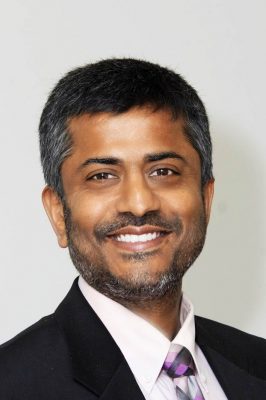
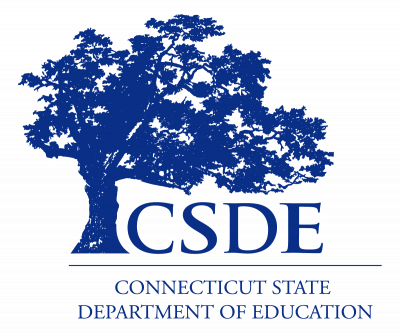
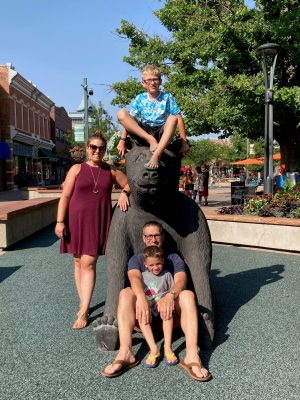
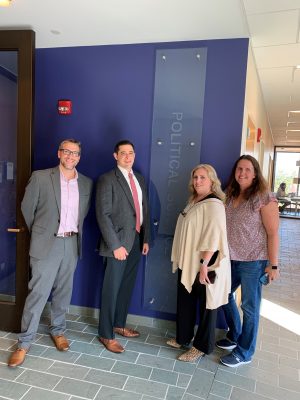
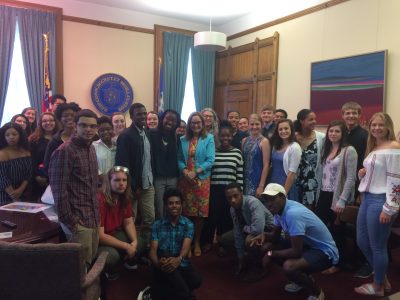
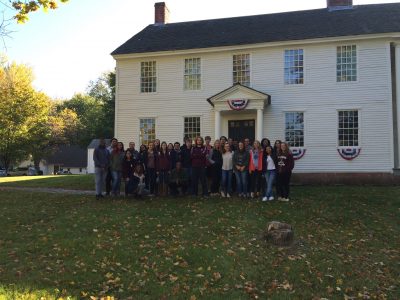
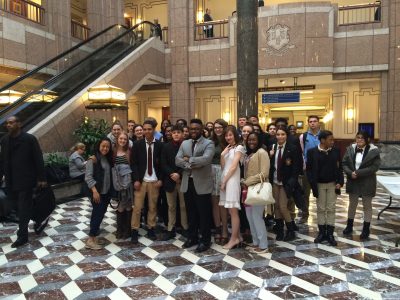
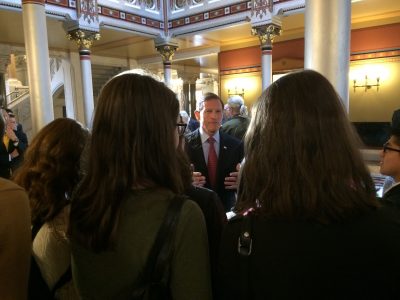
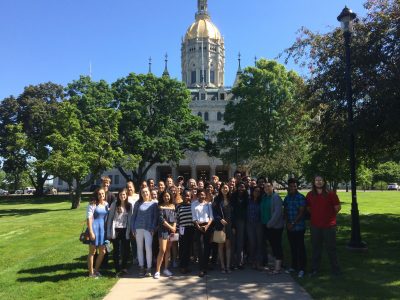
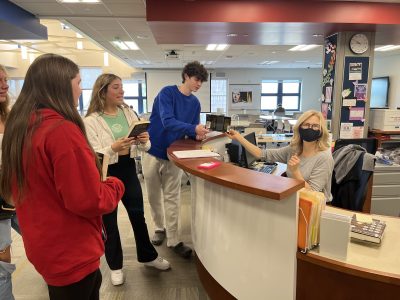

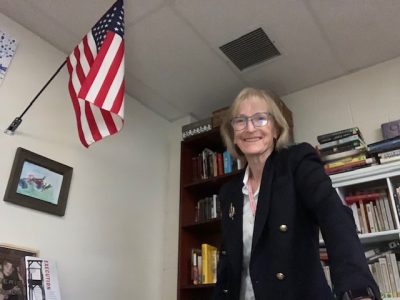

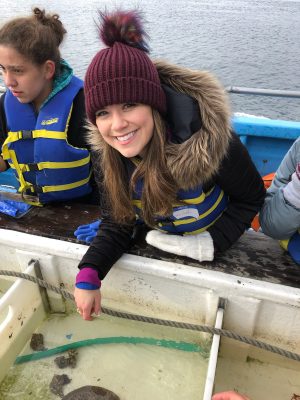
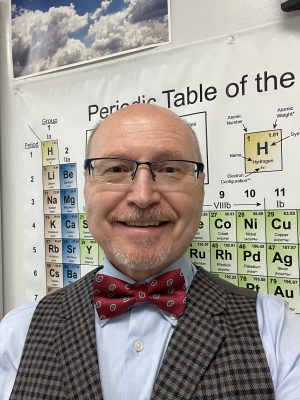
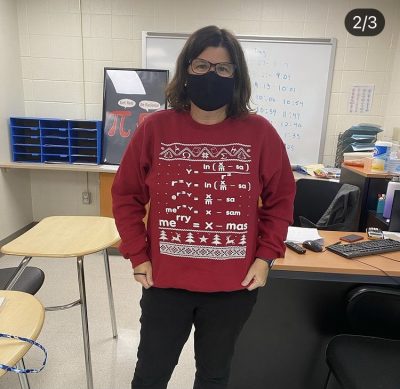
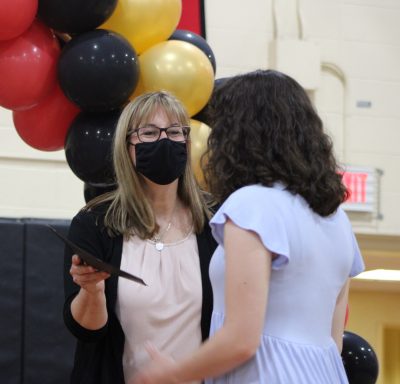
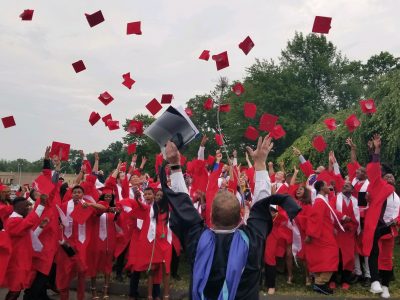
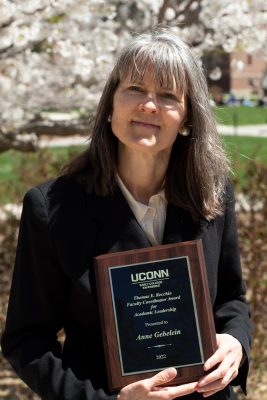
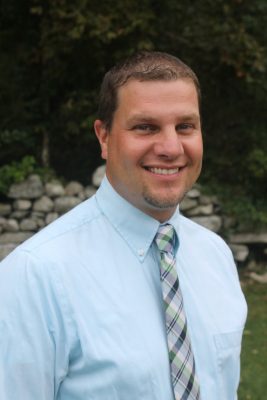 Q. Which courses do you teach?
Q. Which courses do you teach?